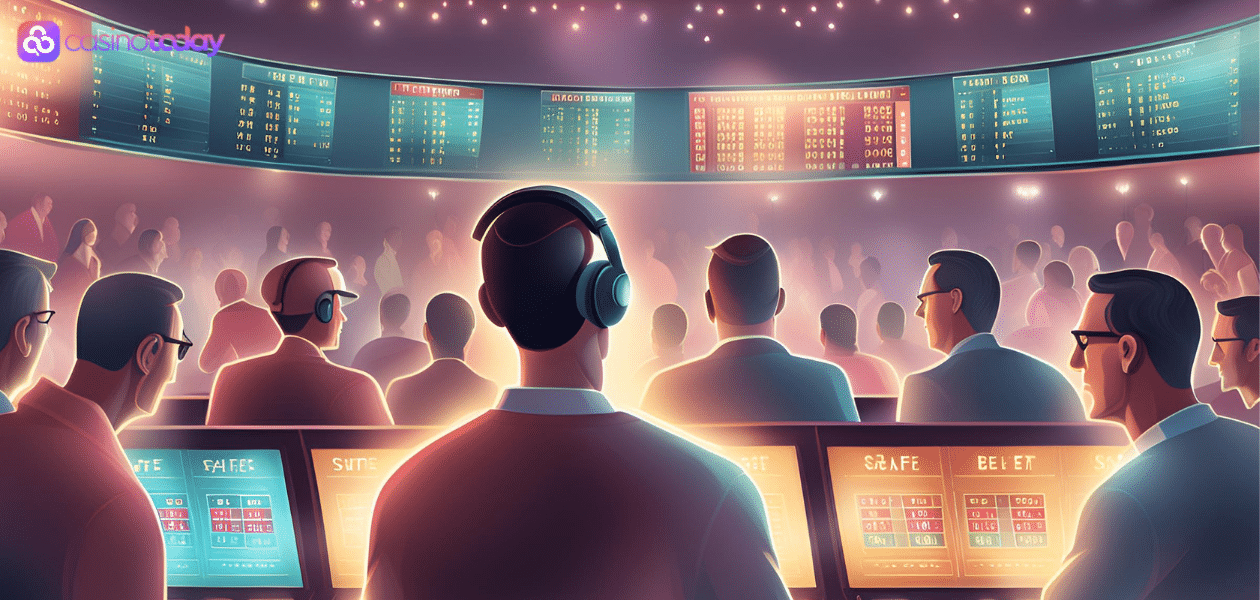Last updated: December 19, 2024

The Senate Judiciary Committee’s hearing on the SAFE Bet Act, which proposes federal regulations for sports betting, faced backlash for excluding industry representatives. The hearing featured testimonies supporting federal oversight but lacked input from sportsbook operators, state lawmakers, or gaming regulators.
Tuesday’s United States Senate Judiciary Committee hearing on whether the legal sports betting landscape needs federal oversight was missing a key star witness in the industry itself.
The Judiciary Committee, under Presiding Chair Senator Dick Durbin of Illinois, held a hearing titled “America’s High-Stakes Bet on Legalized Sports Gambling.” The influential committee sent out five witness invites; however, none present were people engaged in direct operations of the sports-betting industry.
The hearing focused on the SAFE Bet Act, which is the acronym for the Supporting Affordability and Fairness with Every Bet Act. This proposed legislation, submitted by Senator Richard Blumenthal (D-CT) and Representative Paul Tonko (D-NY), intends to set up a succession of federal regulations that shall apply to each state allowing legal sports gambling.
If it passes Congress and is signed into law by the president, the SAFE Bet Act, as currently drafted, would ban all television sports gambling advertising between 8 a.m. and 10 p.m. It would also mandate that sportsbooks conduct “affordability checks” on high-volume bettors and those who intend to make large wagers. It would also impose daily deposit limits and ban the use of credit cards.
Sportsbooks would be prevented from using artificial intelligence to tailor incentives and promotional offers for customers as well. Moreover, advertisement phrases such as “risk-free” would also be prohibited.
Unilateral testimony
The Senate Judiciary, a committee on which Blumenthal serves, did not invite any sportsbook operators, state lawmakers involved in the formulation of sports wagering laws, current gaming regulators, or any representatives from the gaming industry, including its principal trade organization, the American Gaming Association (AGA), to testify. Instead, the committee heard from a limited group of invited guests who are largely proponents of federal regulation of sports betting.
NCAA President Charlie Baker emphasized the potential risks linked to player propositions. Durbin initiated the discussion by posing a hypothetical scenario to Baker involving a disadvantaged youth basketball player who achieves significant success, only to subsequently agree to throw a few free throws for a friend colluding with a bookmaker.
Keith Whyte, executive director of the National Council on Problem Gambling, told the committee that the growth of sports betting has “led to increased harm on a national scale” and said Congress can and should act to intervene. Johnson Bademosi, a former NFL player, said that while sports betting has increased fan engagement, it has also led to the “dehumanization of players.”
As stated on his website, which labels his specialty as “Gambling Counselor,” the current state of the sports betting industry is a “public health crisis,” according to certified gambling counselor Harry Levant. The director of gambling policy at Northeastern University and co-drafter of the SAFE Bet Act for Blumenthal and Tonko further noted that online betting is “tragically ruining the lives of many people and countless families.”
The American Gaming Association has provided support to many state authorities across the country in structuring their gaming laws and regulations, including sports betting, and, in addition to that, the federal as well as state-level agency representing both commercial and tribal gaming interests has been mandated many times to testify to the Congress committees.
This was different. While Republican Senators from Louisiana, John Kennedy and Missouri, Josh Hawley, were granted an hour to interrogate Baker over this NCAA policy that allows “transgender students to continue to compete in the sporting events with which they identity,” the American Gaming Association was not given even the smallest opportunity to present its stance for the sports betting operation.
Today’s hearing notably lacks an industry witness. Regrettably, this excludes testimony from the committee and overall proceeding on how legal gaming protects consumers from the predatory illegal market and its leadership in promoting responsible gaming and protecting integrity,” Joe Maloney, the AGA Senior VP of Strategic Communications Joe Maloney, told Casino.org.
Maloney added that the “We remain committed to robust state regulatory frameworks that protect consumers, promote responsibility, and preserve the integrity of athletic competition. The American Gaming Association opposes the SAFE Bet Act, believing that it is a “heavy-handed” federal bill undermining the efforts of state lawmakers, regulators, and the sports betting industry in developing a safe and regulated sports betting market with consumer protections and responsible gaming safeguards.